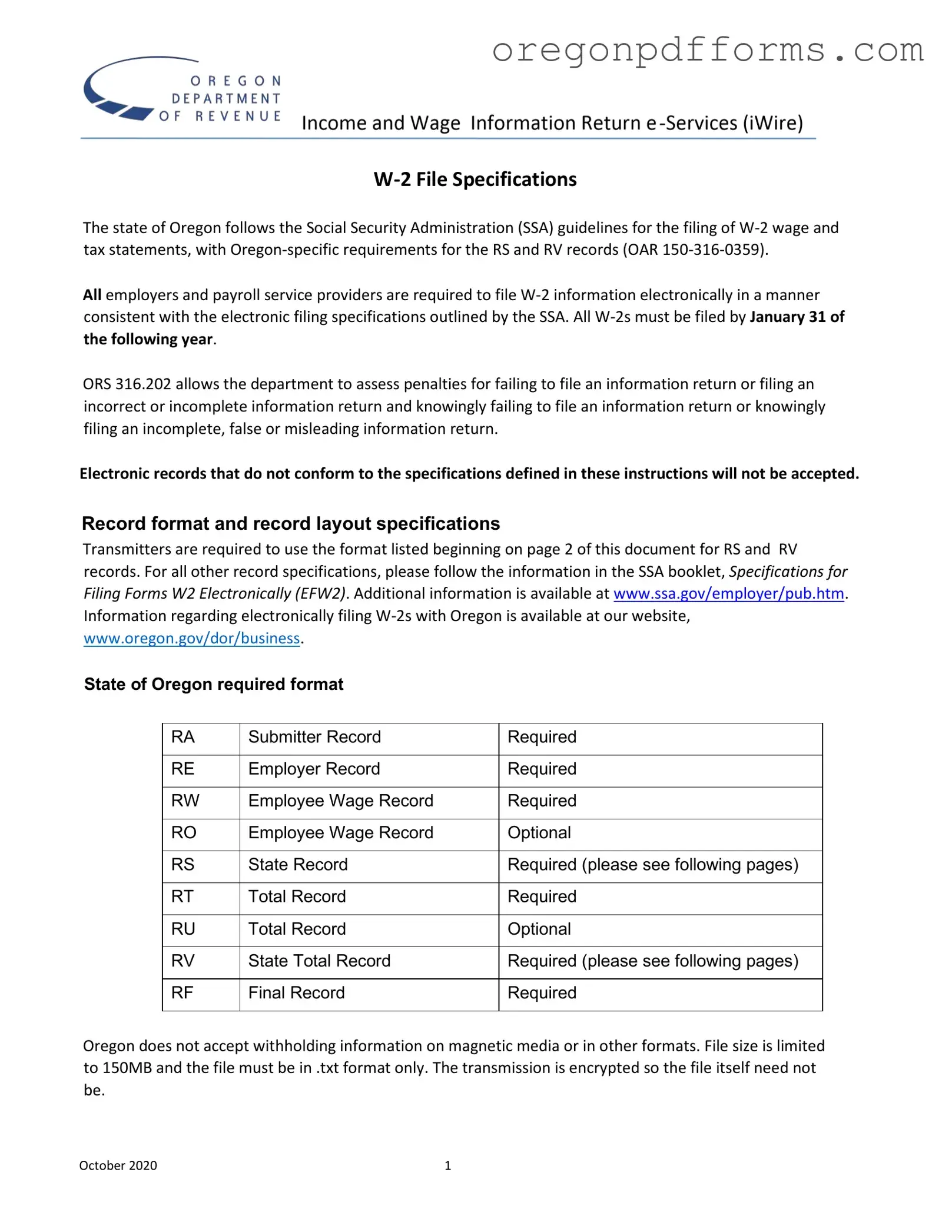Free Oregon W2 Form
The Oregon W-2 form is a document that employers use to report wages and taxes for employees to the state of Oregon. This form must be filed electronically, following specific guidelines set by the Social Security Administration and the Oregon Department of Revenue. It’s important for employers to meet the January 31 deadline to avoid penalties and ensure compliance with state regulations.
Open My Oregon W2

Free Oregon W2 Form
Open My Oregon W2

Open My Oregon W2
or
Get PDF
A few steps left to finish this form
Complete Oregon W2 online with easy edits and saving.